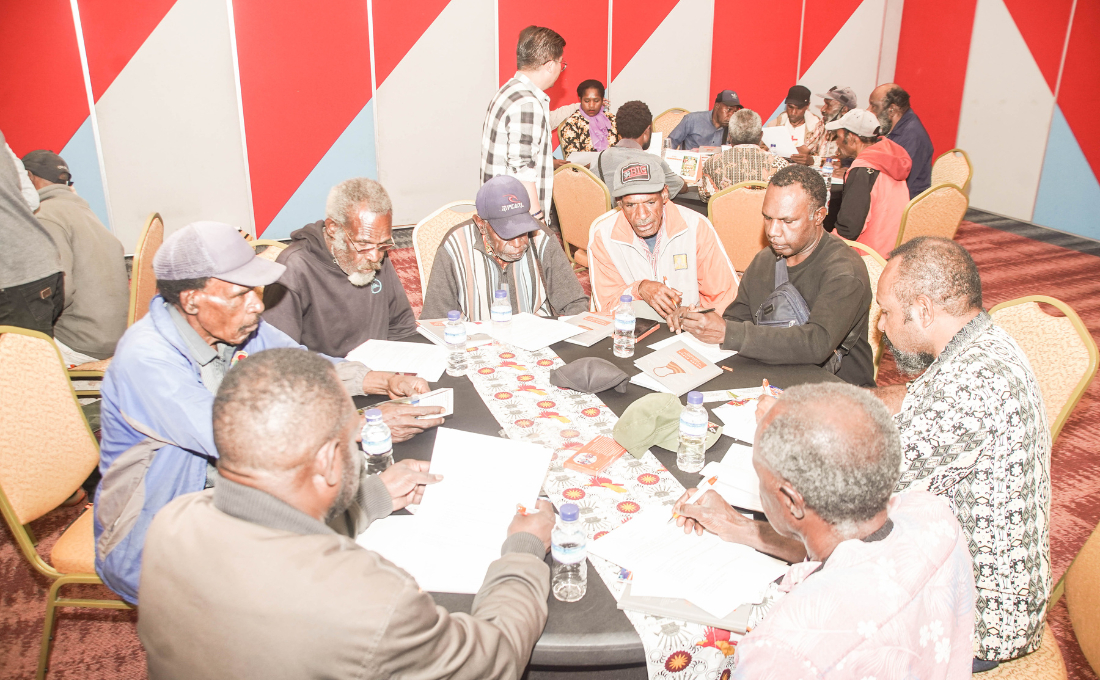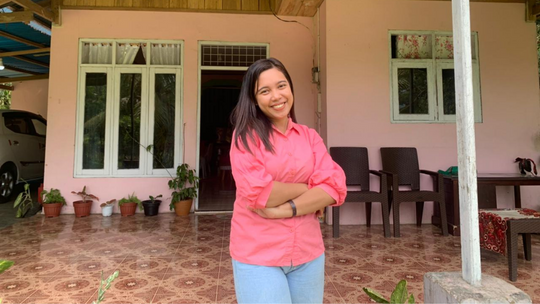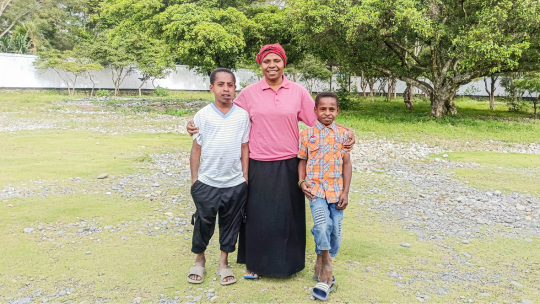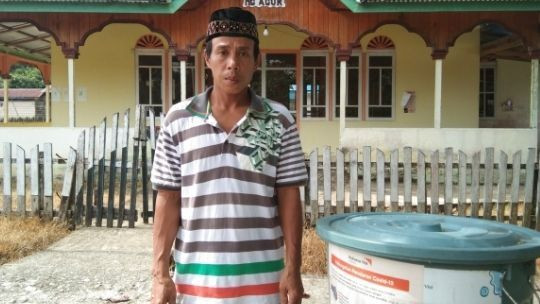Conscience in Action: Advocacy for the Protection of Children in Papua

Violence-related conflicts always harm many people, especially women and children. When the social disasters occur, children, women, and communities feel unsafe, unable to learn, and find it difficult to do their usual activities. In the midst of these conditions, the NOKEN Project (Community Transformation for Harmony) in Papua, a collaboration between Wahana Visi Indonesia (WVI) and church partners, is working to increase the capacity of women, youth, and community leaders to become agents of peacebuilding. The goal is to minimize the impact of conflict and even prevent conflicts from occurring in the surrounding environment. This is what the peace ommittee in one district of Jayawijaya Regency is doing.
This committee aims to create a safe environment for children by preventing violent conflicts. One of the triggers of conflict in the district is excessive drinking, leading to assault, fights, and economic losses for families. Drunk individuals often disturb public order, making residents afraid to go out at night or walk past such groups. Almost all of these drunk individuals are men. The committee has carried out advocacy efforts in response to this issue, which has been well-received by stakeholders. WVI, together with NOKEN project partners, facilitated public consultations as part of citizen participation in developing policies to regulate alcohol abuse.
“As a member of the peace committee, I hope that in our village and district, there will be no chaos, no conflict between one another, so that we can live safely, comfortably, and carry out our activities well,” said Lukas, a committee member.
Since its inception in 2023, the Peace Committee has received capacity-building to conduct socialisation, advocacy, and mediation. The committee has successfully analysed that alcoholic beverages are one of the triggers of violence, ranging from domestic violence to inter-tribal conflicts.
“House fires, accidents, people being blocked on the road, all because of alcohol. We don't want our next generation to be cut short because of alcohol. Many young people have died because of alcohol," said Andreas, a village head and participant in the event, softly.
"Indeed, alcohol is a social disease. Every day we see people drinking alcohol, even to the point of addiction. Dealers or distributors are in our environment. Many people produce alcohol, including in my village. It becomes a source of income for them. Actually, we nurture this problem consciously. There must be a deterrent effect for dealers and drinkers, to cut the chain off of various existing problems,” said Kosmas, another participant.
The discussion process was interesting. Many suggestions were made to find practical solutions in accordance with local wisdom. For example, regarding fines, some questioned whether it was fair to impose fines on families and not just on the perpetrators themselves, considering that many families are less well-off. Others suggested that fines be discussed at the next meeting. Criminal sanctions in the form of imprisonment or fines, in accordance with government regulations, may only be applied in laws and regional regulations. Outside of that, laws and regulations may not include criminal sanctions.
After the discussion, participants signed a recommendation sheet and submitted it to the district head. Smiles appeared on the faces of the committee members, a sign of the unity of heart of the community and district government to realize the dream of a better environment.
"I am proud and happy. Hopefully, the recommendations we discussed will not stop here, but we will discuss it again by inviting the villages. All the people please provide data on where people make drinks, so that we know and have that data. We will follow up at the village level (village regulations) so that with these regulations, we can discipline the community and save our future generations," concluded Laurens, the district head.
"I hope that in the future this district will always be safe and be an example for the 39 other districts in Jayawijaya," said Afrida, a district staff member who is active in activities with the peace committee.
Author: Andina Larasati (NOKEN MEL Coordinator)
Editor: Mariana Kurniawati (Communication Executive), Junito Drias (Advocacy and External Engagement Manager)



